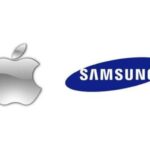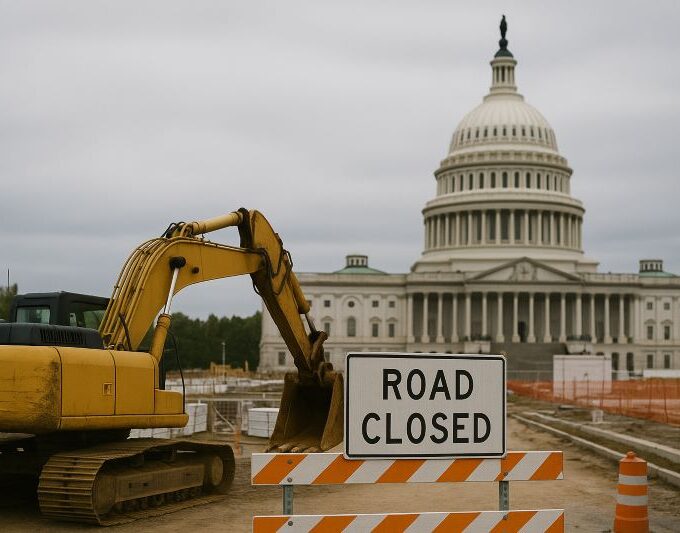“Judging by the latest business data emerging from various industries, President Trump’s tariff policies are causing more pain for many companies,” Reuters reported on the 6th. Many U.S. businesses are facing weakening market demand and rising product costs. According to Reuters’ global tariff tracker, companies that have released their latest quarterly earnings reports are warning that profits in 2025 will be impacted. Among these, automakers are feeling the effects of tariffs most acutely.
Ford Motor Company’s recent earnings report showed tariff-related losses of $800 million in the second quarter of 2025, leading to the company’s first quarterly loss since 2023. General Motors reported $1.1 billion in tariff-related losses for the same period. Stellantis, the multinational carmaker that owns several American brands including Chrysler, reported $350 million in losses due to tariffs. The three auto giants estimate that tariffs will cost the U.S. auto industry a total of $7 billion in lost profits in 2025.
“If Trump’s tariff policy really boosted the outlook for American manufacturing, Ford should have been one of the biggest beneficiaries. In reality, tariffs are hitting Ford hard,” the U.S. magazine Reason reported on the 5th. While Washington claims tariffs are reviving American manufacturing, Ford expects tariffs to cut $2 billion from its annual profits—an especially heavy blow given its $10.2 billion in operating profit last year. As the automaker with the most domestic production, Ford rolled out 1.8 million vehicles from its U.S. factories last year and employs about 57,000 manufacturing workers across several Midwestern states—making it a major employer for blue-collar workers in America’s Rust Belt.
Bloomberg, citing industry data, reported that nearly all automakers producing vehicles in the U.S. are facing the same dilemma: White House documents estimate that, on average, 50%–60% of parts in vehicles assembled in the U.S. are imported. With Washington imposing a 50% tariff on steel and aluminum and a 25% tariff on auto parts, American car companies—despite promoting themselves as highly localized—are ironically more vulnerable to the impact of tariffs.
Ford CEO Jim Farley highlighted a stark example: an SUV assembled in Kentucky ends up costing $5,000 more than a competing model imported from Japan. Similar cost disparities have also appeared with vehicles imported from South Korea. Farley admitted that Ford executives are now in near-constant talks—daily, weekly, and monthly—with the Trump administration in an effort to offset the “negative impact” of the tariffs.
Tesla is considered one of the least affected automakers under the current tariff regime, since its electric vehicles for the U.S. market are built in California and Texas. Even so, a 2024 document from the National Highway Traffic Safety Administration revealed that only about 60% to 75% of the parts used in those vehicles are sourced from the U.S. or Canada—the rest largely come from Mexico.
Bloomberg noted that while U.S. car retailers haven’t yet raised prices across the board, the effects of tariffs will inevitably reach consumers. Some automakers are trying to cushion the blow by ramping up production before the tariffs take effect—but this is just the calm before the storm. Dealership inventories typically only last two to three months. The Anderson Economic Group warned that price hikes in the U.S. auto market are now a countdown away: some imported luxury vehicles and EVs could see price increases of over $12,000 per unit, while even U.S.-made vehicles may go up by $2,000 to $3,000 each. The secondary market could be hit even harder—used car prices are expected to rise steadily, and repair costs have already surged 58% over the past decade due to tariffs on parts.
The auto industry has become the “sponge” absorbing the cost of manufacturing tariffs, U.S. website Car and Driver reported on the 6th. From Tesla to Porsche, top auto executives are warning of tough times ahead, with product prices set to climb in step with tariffs. Experts say global automakers and suppliers are being forced to pay for Washington’s tariff revenues with their profit margins. This is an unprecedented situation—one that companies, shareholders, and Wall Street may soon find unsustainable. And consumers, already feeling squeezed, will ultimately foot the bill for this prolonged trade war.
The report also pointed out a deeper issue with Washington’s tariff policy: while it claims to strengthen domestic industry, evidence is emerging that tariffs are no silver bullet. Instead, they may be making it harder for American carmakers to compete—even at home—against imported vehicles that boast better design, more advanced technology, stronger software, and greater reliability.













Leave a comment